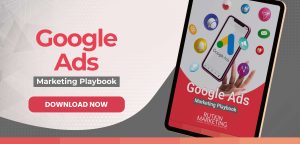SEO vs. PPC: Which Strategy Is Right for Your Business?

Your website is your number one employee. It’s often the first point of contact people have with your brand. But how are they finding you? Is it organically, like meeting someone on the street? Or is it paid, like an introduction at an exclusive event? This is the difference between SEO vs. PPC strategies for your business.
SEO brings visitors to your website organically, while PPC utilizes a budget to target and reach your audience. Each has its own set of advantages, limitations, and ideal use cases. In this article, we’ll explore when and how each strategy can best support your business goals.
Overview of Search Engine Optimization (SEO)
Search engine optimization (SEO) improves your website’s organic visibility in search engine results. By optimizing each page on your website, you enable search engines to discover, crawl, and rank your site for relevant search queries. While SEO itself doesn’t incur direct costs, there may be expenses for professional SEO services, tools, software, and website maintenance. SEO is important for generating high-quality leads.
Key Components
There are three key components of SEO: On-page SEO, off-page SEO, and technical SEO. Together, these elements ensure your website is fully optimized for search engines.
- On-page SEO: This focuses on optimizing individual pages on your website. This is handled on the backend of your website hosting platform. Key activities include content creation and optimization, keyword research, strategic planning, and writing unique metadata for each page.
- Off-page SEO: Off-page SEO involves actions outside of your website that impact its authority, reputation, and visibility. Building high-quality backlinks is the most common and effective strategy to drive traffic from external sources.
- Technical SEO: Technical SEO refers to optimizing your website’s infrastructure to ensure a seamless user experience. Priorities include site speed, performance, and mobile friendliness.
Advantages of SEO
There are several advantages to implementing an SEO strategy for your website. SEO is a long-term approach, meaning that once you have the foundational elements in place, it can deliver sustainable results. While minor updates may be needed occasionally, SEO will continue to generate leads from search engines over time.
It also helps build brand authority and trust among search engines. When search engines trust that you provide high-quality experiences to users, they will start to rank you higher in search results and send more traffic your way.
Additionally, SEO-driven traffic tends to achieve higher conversion rates. Because users are searching with specific intent, they are more likely to find the solution they need on your site. By aligning your content, webpages, and products with user intent, SEO can attract highly qualified visitors to your site.
Common SEO Mistake
One of the most common SEO mistakes is assuming Google will automatically find and rank your website simply because a page is live. SEO is essential in helping Google discover your website, understand the content on each page, and determine when to display it in search results.
Overview of Pay-Per-Click (PPC) Advertising
With pay-per-click (PPC) advertising, you pay a fee each time someone clicks on your ad. You are essentially purchasing visits to your website. The cost per click varies widely depending on factors such as competition, ad placement, landing page relevance, and your target audience.
Types of PPC Ads
There are many different ad formats and platforms to implement PPC campaigns to reach your target audience.
- Search ads: Text-based ads in search engine result pages that appear when users search for a specific keyword.
- Display ads: Visual ads on websites within the Google Display Network.
- Social media ads: Ads placed on social networks, such as Facebook, Instagram, LinkedIn, Pinterest, and TikTok.
- Retargeting ads: Ads targeting individuals who have previously visited your website but didn’t complete a desired action.
- Video ads: Ads in video format, commonly used on platforms like YouTube, Instagram, and TikTok.
Advantages of PPC Ads
Unlike SEO, PPC ads provide immediate and measurable results. Traffic starts flowing to your website as soon as your campaign goes live. A/B testing can help determine which ads perform the best, allowing you to focus your efforts and budget on the most effective options.
With PPC ads, you can also target specific audiences based on geographic and demographic factors. Reaching the right audience at the right time can mean the difference between acquiring a new client or missing an opportunity.
Common PPC Ads Mistake
A common mistake we often see clients make is jumping right into paid ads without a clear and comprehensive strategy. However, successful PPC ads require a well-planned approach across the entire customer journey. What happens after someone clicks on your ad? Are they directed to a landing page optimized for conversion or a random page on your website?
What happens next? Are these leads nurtured through an automated email sequence, or are they left without follow-up? To maximize the effectiveness of your PPC campaigns, you need a holistic approach to managing and optimizing performance.
When to Use SEO vs. PPC
There are certain use cases that call for SEO or PPC as the more effective strategy. Let’s look at each approach to help you decide on the best fit for your business.
Website Redesign
If you are designing a new website, incorporating SEO is critical. SEO lays the foundational groundwork for how your website will rank in search engines. A beautiful, visually appealing website without SEO optimization is useless and won’t attract organic traffic. Whether you outsource web development or do it yourself, be sure to make SEO a priority.
New Product or Program Launch
For a new product or program launch, PPC is often the better choice for quick results. With PPC, you can reach a targeted audience that might not yet know about your business.
Driving Local Traffic
Local businesses benefit from SEO to attract customers within a specific geographic area. Local SEO optimization includes setting up and optimizing a Google Business Profile, targeting local keywords, and encouraging positive customer reviews.
Seasonal Promotions
For short-term needs, such as limited-time sales, events, or seasonal offers, PPC ads are ideal for generating quick results within a defined timeframe.
Integrating SEO and PPC for a Holistic Strategy
SEO and PPC are a powerful combination for driving qualified traffic to your website. Together, they form a holistic marketing strategy that supports your business growth.
PPC campaigns provide immediate insights into the keywords that attract the most traffic to your website. You can use this data to inform your SEO efforts, helping you better optimize existing pages or create new ones targeting high-performing keywords.
While SEO builds organic traffic, PPC retargeting ads allow you to reach visitors who came to your site organically but didn’t convert, giving you a second chance to capture these missed opportunities.
By leveraging both strategies, you will position your business as an authority in the marketplace. When potential customers see your brand in both organic and paid listings, it builds trust and credibility, which often leads to higher click-through rates (CTR).
SEO vs. PPC: Have You Decided?
Ready to get started with SEO? With our website SEO analysis, we’ll assess your needs, conduct initial research, build a plan, and implement our proven methodologies to achieve high-quality results. Contact us for a free assessment. If PPC sounds right for you, schedule a free assessment to discuss your goals and how paid ads can complement your overall digital marketing strategy.
Sometimes choosing between SEO vs. PPC isn’t necessary–you can benefit from the strengths of both! If you are still unsure how SEO or PPC can help you reach your goals, we’d be happy to discuss it with you in an assessment call. Our team is here to support the growth of your business.

